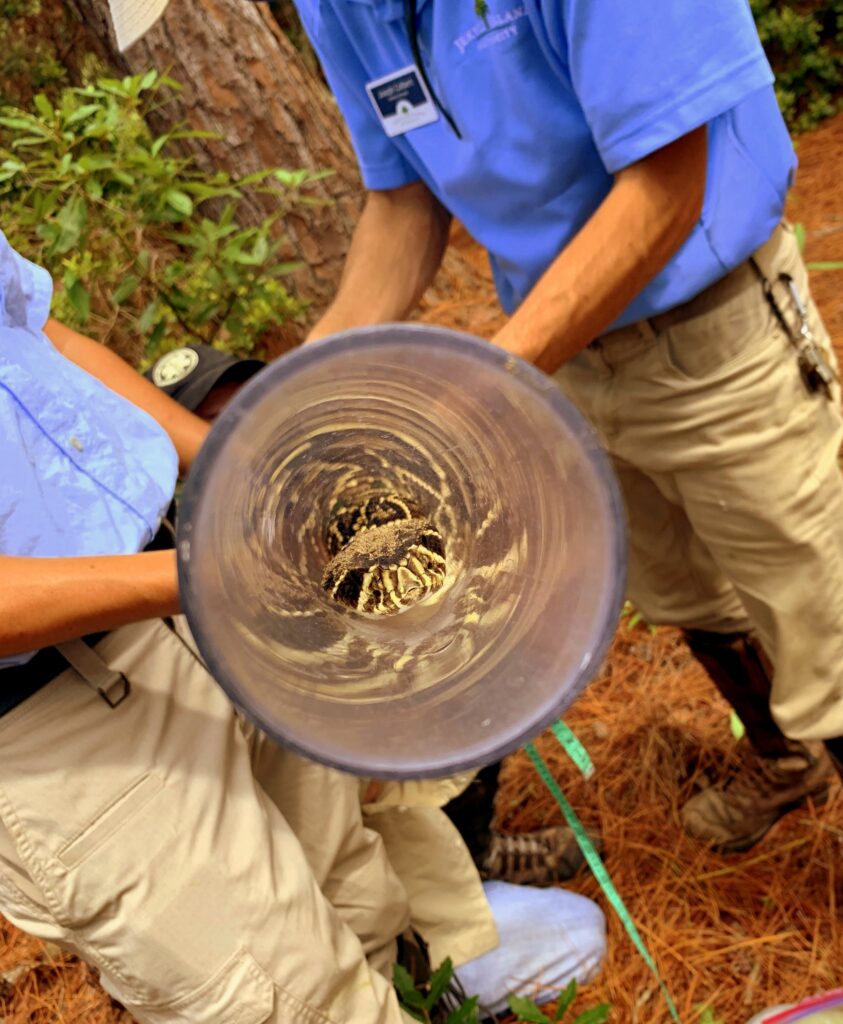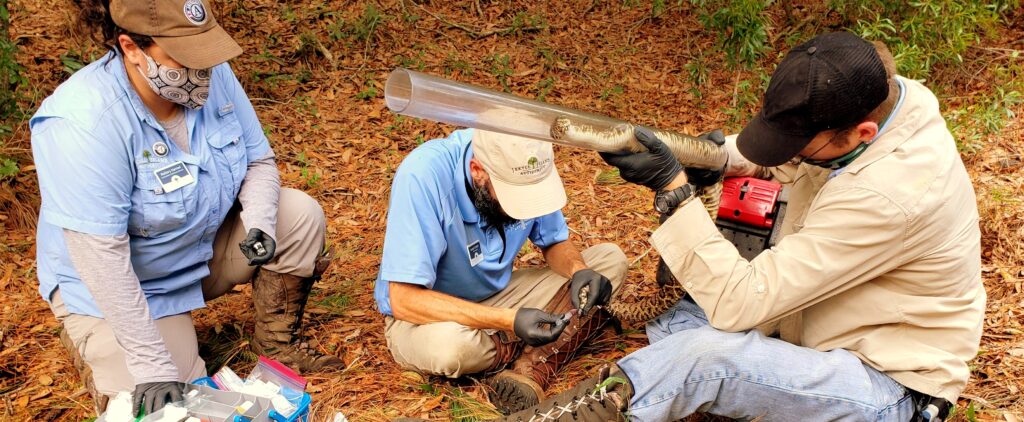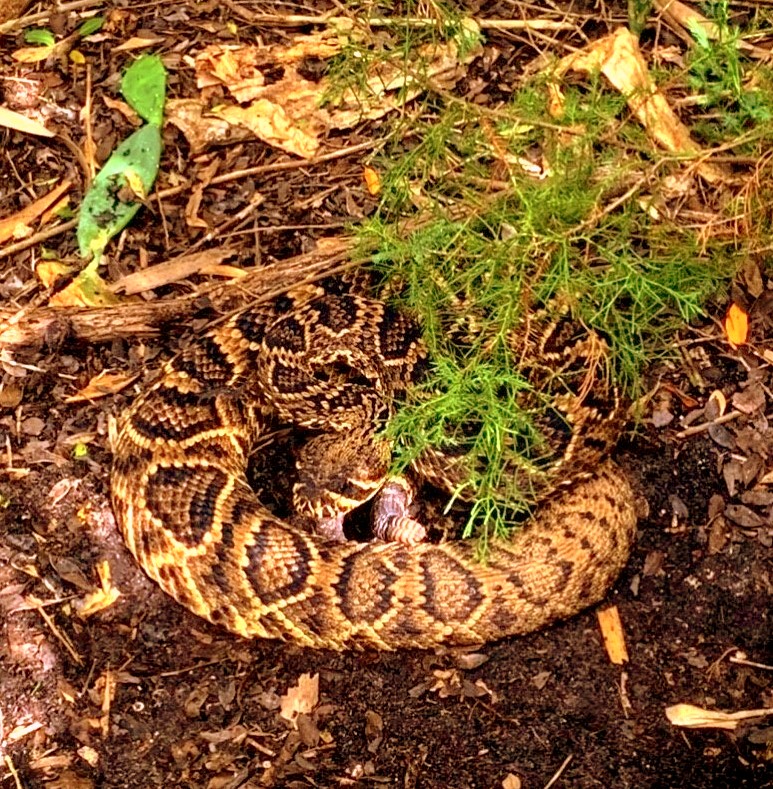By Mallory Harmel
Conservation AmeriCorps Member and
Ben Carswell
JIA Director of Conservation
Turtles, dolphins, alligators, and deer are animals Jekyll Island visitors may expect to see, but very rarely do visitors happen across a top predator that has mastered avoiding people and blending in with their surroundings like the Eastern Diamondback rattlesnake (Crotalus adamanteus). Eastern Diamondback rattlesnake, or EDBs, have been a conservation priority to the JIA since 2011 and are the subject of ongoing long-term monitoring and research.
Historically found across much of the Southeast, this cryptic species has now largely retreated to strongholds in Northern Florida and Southern Georgia. Petitioned for federal protection under the Endangered Species Act in 2011, EDBs have unfortunately been feared and killed more than appreciated for their stabilizing ecological role as predators.
Because they are challenging to find and study, many questions about their biology and physiology call for research to support conservation planning and management. JIAs conservation and veterinary professionals have zeroed in on health and reproduction as one of the most important knowledge gaps. With the support of the Jekyll Island Foundation, blood samples were collected from a dozen EDBs and will be tested to provide baseline blood “reference values”. This study, and the results, is the first of its kind in the wild for the species and will be impactful beyond Jekyll Island by making it possible to recognize when EDB populations may be succumbing to poor health in response to circumstances such as habitat loss or climate change. Additionally, blood data can be used to predict if a female is in early stages of pregnancy or could become pregnant in the following breeding season.
The EDB research team is excited to report the findings when the study is complete! In the meantime, if you come across an Eastern Diamondback Rattlesnake, please respect their space but know that they are not out to get you. They strike only as an option of last resort out of self-defense. Please never harm any snake and take time to appreciate their magnificent adaptations of form and function that allow them to survive and thrive in their wild domain.
Visit CONSERVATION ON JEKYLL ISLAND to learn more about projects, research, and education opportunities.




